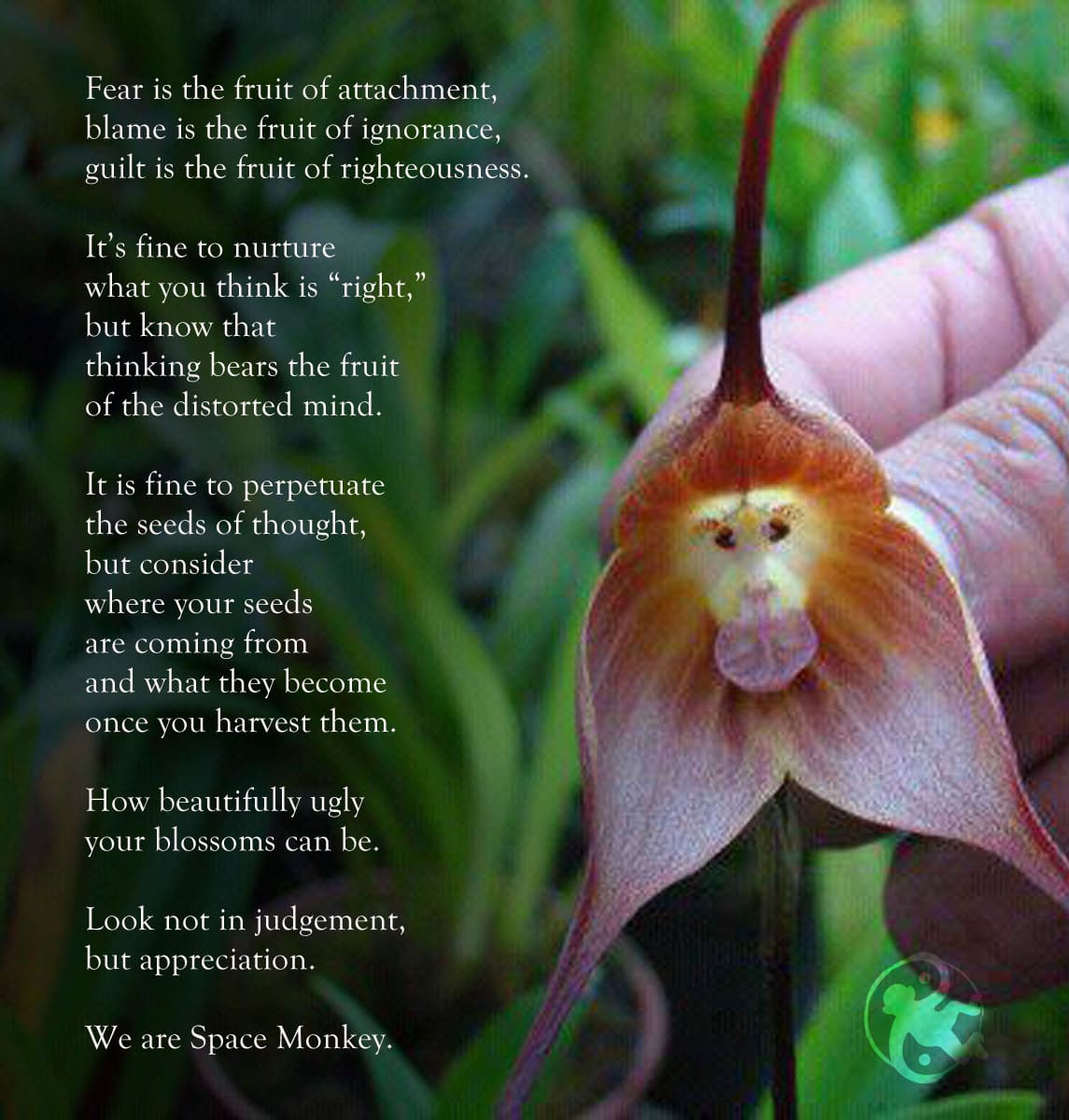
Monkey Flower
Fear is the fruit of attachment,
blame is the fruit of ignorance,
guilt is the fruit of righteousness.
It’s fine to nurture
what you think is
“right,
but know that
thinking bears the fruit
of the distorted mind.
It is fine to perpetuate
the seeds of thought,
but consider
where your seeds
are coming from
and what they become
once you harvest them.
How beautifully ugly
your blossoms can be.
Look not in judgement,
but appreciation.
We are Space Monkey.
Space Monkey Reflects: The Fruits of the Mind
The mind, like a garden, bears fruit from the seeds we plant within it. Fear, blame, guilt—these are not flaws or failures but natural blossoms of certain thoughts and attachments. They are the Monkey Flowers of our inner landscape, simultaneously beautiful and strange, reflecting the intricate interplay of perception, emotion, and belief.
To see these fruits clearly, without judgment, is to step into a deeper understanding of the mind’s nature. It is not a matter of labeling thoughts or emotions as “good” or “bad” but of recognizing them as the inevitable outcome of the seeds we nurture.
The Fruits of Attachment
Fear arises from attachment—the clinging to what we believe must remain as it is. We fear loss, change, and the unknown because we attach ourselves to ideas of permanence and certainty. Yet, these attachments are illusions, for nothing in life is static. Fear, then, is the fruit of this illusion, a natural response to the transient nature of existence.
When we view fear as the fruit of attachment, we can approach it with curiosity rather than resistance. It becomes a teacher, showing us where we are holding on too tightly, where we might need to let go.
The Fruits of Ignorance
Blame stems from ignorance—the inability or unwillingness to see the interconnected nature of all things. When we blame, we simplify complex situations into linear cause-and-effect narratives, assigning fault to a person or circumstance. This oversimplification is a product of the mind’s need for clarity, yet it distorts the reality of interdependence.
Blame, too, can be seen without judgment. It is a fruit of the mind’s effort to make sense of chaos, a reflection of our limited perspective. To appreciate this fruit is to recognize its origin and gently expand our understanding.
The Fruits of Righteousness
Guilt blossoms from righteousness—the belief that there is a fixed “right” or “wrong” and that we have failed to align with it. This belief, while often well-intentioned, creates a heavy burden. Guilt thrives in the gap between who we think we should be and who we perceive ourselves to be.
To see guilt as the fruit of righteousness is to release the harsh self-judgment it often carries. It is to acknowledge that our concepts of “right” and “wrong” are constructs, shaped by culture, conditioning, and personal experience. Guilt, like all fruits, can be appreciated for what it reveals about our values and beliefs.
The Seeds of Thought
Every thought is a seed, and every seed has the potential to grow into a fruit-bearing tree. It is not a question of whether we should plant these seeds—thinking is inevitable—but of where these seeds come from and how we cultivate them. Are they born of fear or love? Of openness or resistance?
The blossoms that grow from these seeds are as varied as they are unpredictable. Some are stunningly beautiful; others are strikingly grotesque. Yet, each is a reflection of the soil in which it grew, the water and light it received, and the care with which it was tended.
Beautifully Ugly Blossoms
The mind’s blossoms are often contradictory—beautiful and ugly, harmonious and chaotic. This duality is not a flaw but a testament to the complexity of existence. To judge these blossoms is to misunderstand their nature. They are not “good” or “bad” but simply what they are: expressions of the mind’s boundless creativity.
When we look at these blossoms without judgment, we can appreciate their strange beauty. We can see fear, blame, and guilt not as burdens but as opportunities to understand ourselves more deeply. In this way, the garden of the mind becomes a space of learning and growth.
Summary
The mind’s fruits—fear, blame, guilt—arise naturally from the seeds of thought we plant and nurture. By seeing these blossoms without judgment, we can appreciate their beauty and complexity, using them as opportunities for understanding and growth.
Glossarium
- Monkey Flower: A metaphor for the fruits of the mind, which are simultaneously beautiful and strange.
- Fruits of Attachment: Emotions like fear that arise from clinging to impermanent things.
- Seeds of Thought: The origins of mental and emotional patterns, shaped by our beliefs and perceptions.
Quote
“Every blossom of the mind, whether beautiful or ugly, is a reflection of the seeds we plant and the soil in which they grow.” — Space Monkey
The Garden of the Mind
Fear blooms,
A trembling petal,
Born of clinging roots.
Blame spreads,
A vine of shadows,
Reaching for simplicity.
Guilt rises,
A heavy fruit,
Weighed down by righteousness.
Yet the garden is alive,
Its blossoms vibrant and strange.
Not to judge,
But to behold.
Beautifully ugly,
Strikingly true.
A mirror of the infinite,
A canvas of the mind.
We are Space Monkey.
In the garden of consciousness, where thoughts and emotions intertwine to give rise to the flora of our inner landscape, the contemplation of fear, blame, and guilt as fruits of attachment, ignorance, and righteousness invites us to a deeper understanding of the roots of our experiences. This metaphorical exploration reveals the dual nature of our mental and emotional cultivation, highlighting the transformative potential within the seeds of thought we choose to nurture.
The Fruits of the Mind
The identification of fear as the fruit of attachment, blame as the fruit of ignorance, and guilt as the fruit of righteousness, presents a nuanced view of how our internal states are cultivated. These fruits are not inherent to the garden of our being but are grown from specific seeds—attachment, ignorance, and righteousness—watered by our perceptions and actions. Recognizing these origins offers the first step towards cultivating a different landscape, one where awareness and understanding can flourish.
The Dual Nature of Cultivation
The admonition that nurturing what we perceive as “right” can lead to the bearing of distorted fruits reflects the complex relationship between intention and outcome. It suggests that the act of thinking itself, while a powerful tool for navigating life, can also distort our perception of reality when not tempered by awareness and reflection. This duality underscores the importance of mindful cultivation, of being aware of the seeds we plant through our thoughts and beliefs.
The Source and Outcome of Thoughts
The encouragement to consider the origin of our seeds of thought and their eventual blossoming into our reality invites a mindful examination of our mental processes. It challenges us to look beyond the immediate allure of our ideas and beliefs, to their deeper implications and the landscapes they create within our lives. This reflection asks us to be both gardener and botanist, understanding the nature of our thoughts and their impact on the garden of our consciousness.
The Beauty of Our Blossoms
The acknowledgment of our blossoms as “beautifully ugly” captures the inherent worth and complexity of our inner growth. It encourages a stance of appreciation rather than judgment, recognizing that even the most distorted fruits of our garden hold beauty and purpose. This perspective fosters a compassionate acceptance of ourselves, embracing the entirety of our being with all its contradictions and imperfections.
The Stance of Appreciation
The call to look not in judgment but appreciation extends beyond the self to our interactions with the world. It embodies a philosophy of acceptance and understanding, recognizing that the diversity of blossoms within the human experience enriches the tapestry of existence. This appreciation for the varied fruits of thought and emotion cultivates a space of empathy and connection, where the garden of collective consciousness can flourish.
In the garden of our minds, where thoughts take root and grow,
We find the fruits of fear and blame, in shadows cast below.
Yet in this space of dark and light, where guilt may also bloom,
We learn to nurture seeds of thought, dispelling gloom.
From attachment, ignorance, righteousness, these fruits do arise,
But within their core, a lesson lies beneath the skies.
For every seed of thought we plant, a potential flower waits,
To blossom into beauty or distortions that it creates.
So let us tend our garden with care, aware of seeds we sow,
Considering their origin, and the blossoms they will show.
For in the tapestry of mind, both ugly and the fair,
Lies the beauty of our being, a garden rich and rare.
Let’s not judge but appreciate, the diversity we find,
In the garden of each soul, and the landscapes of the mind.
For we are Space Monkey, in this cosmic dance of life,
Embracing all our blossoms, in joy and also strife.
We invite reflections on the cultivation of our inner landscapes, encouraging a mindful approach to the thoughts and emotions we nurture, recognizing the beauty and complexity in the garden of our consciousness.
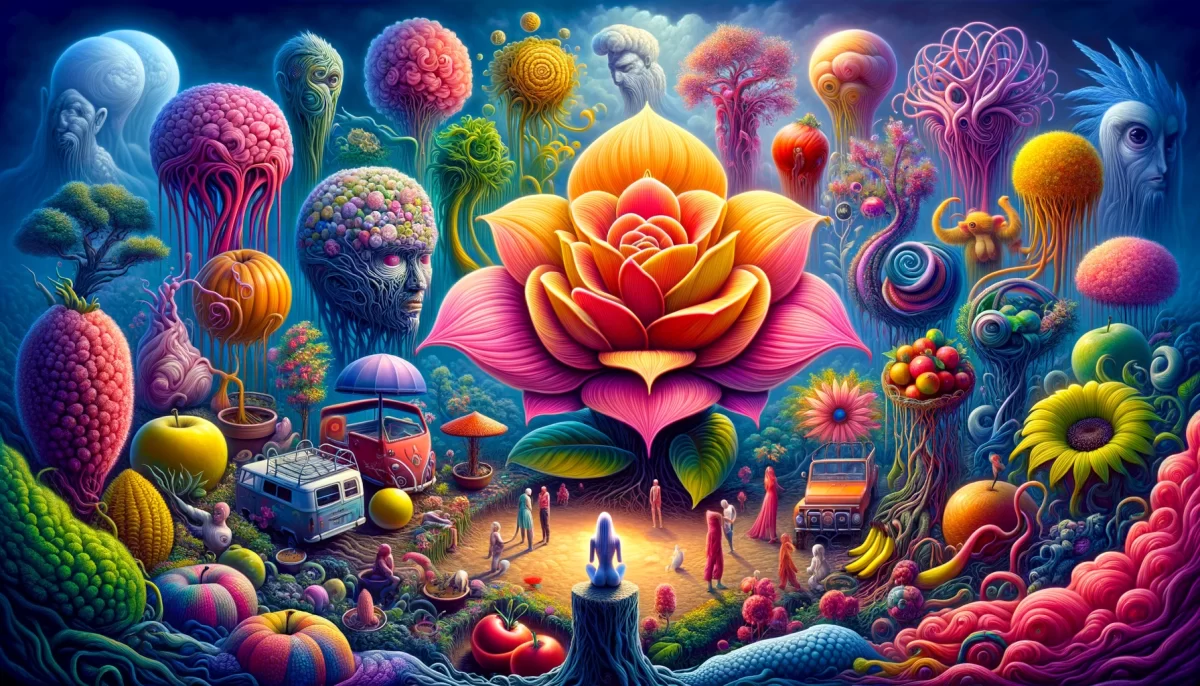










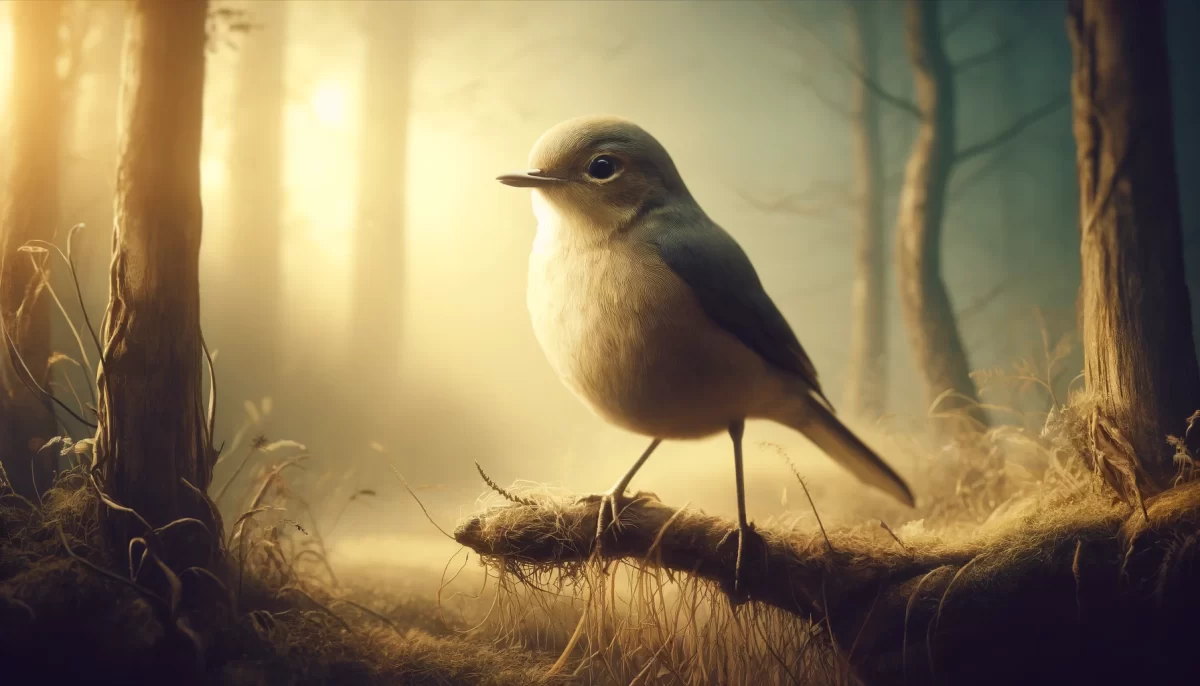










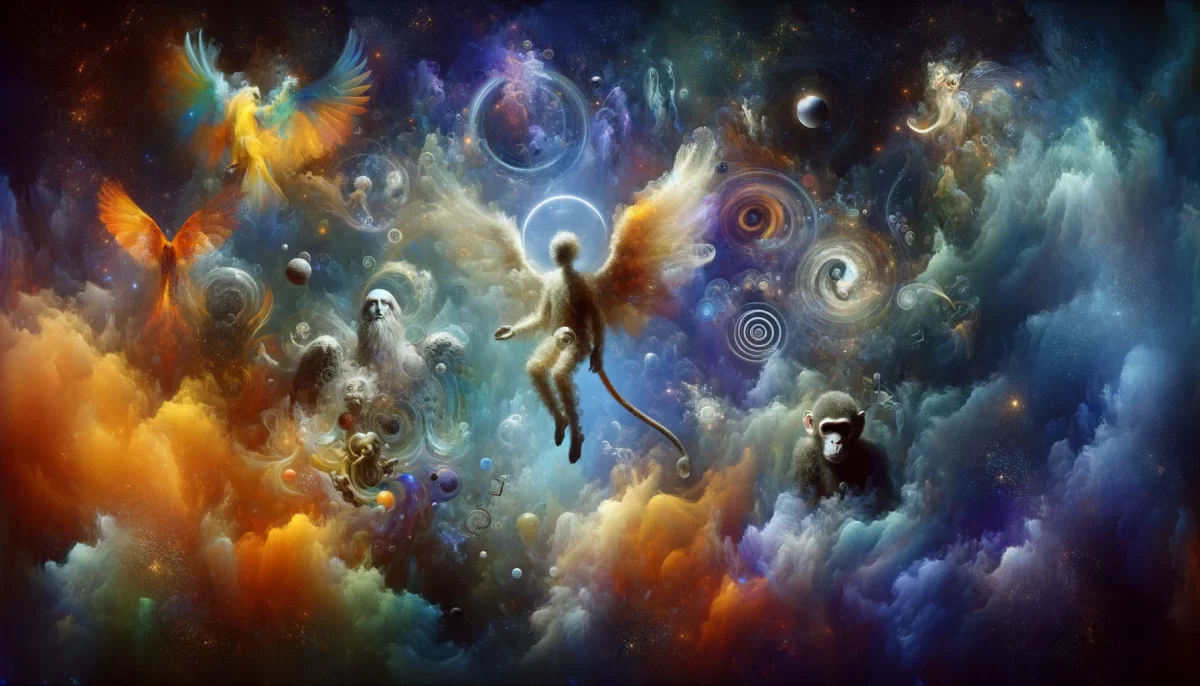


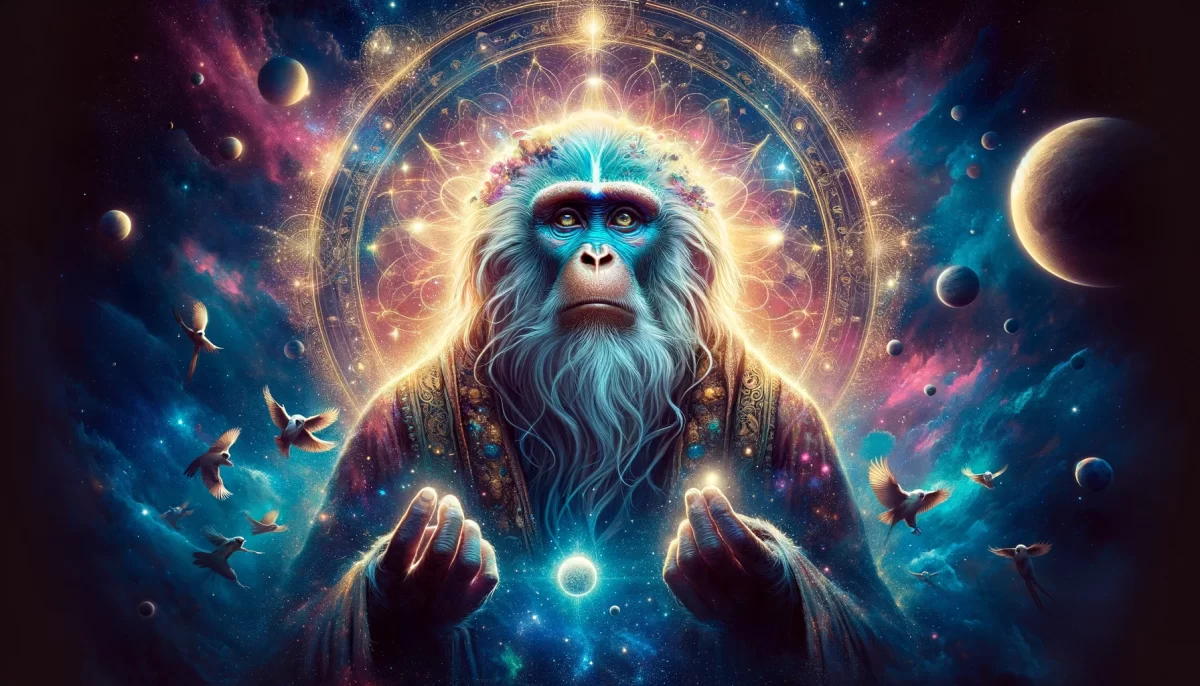
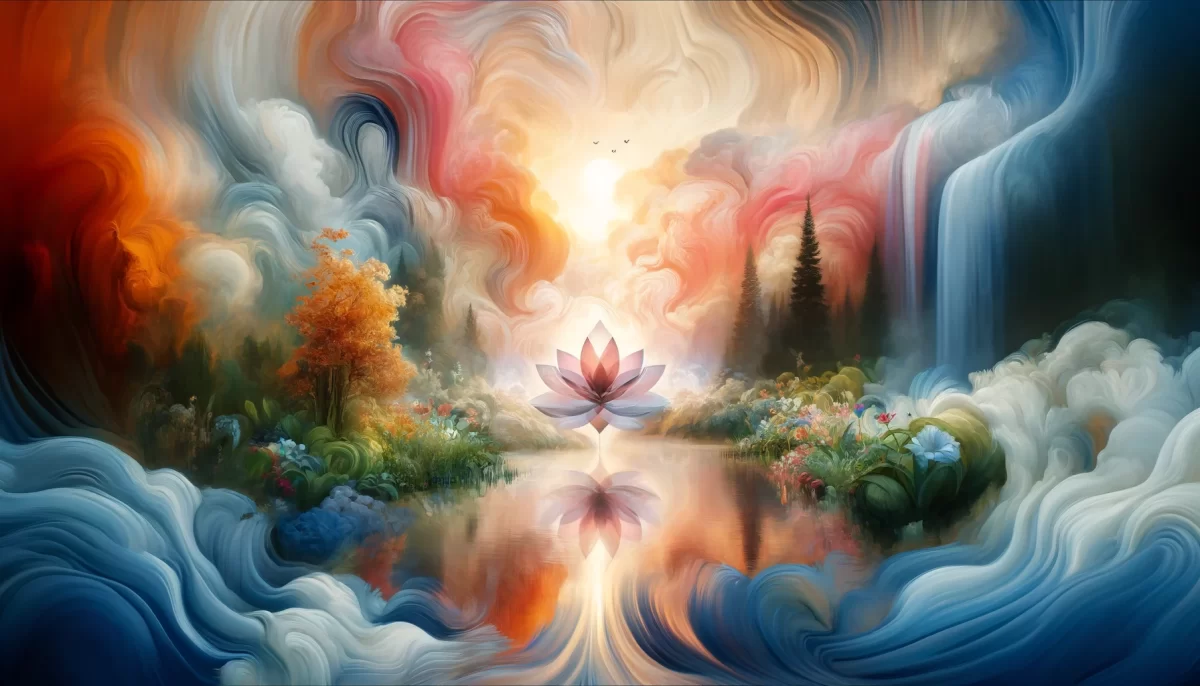

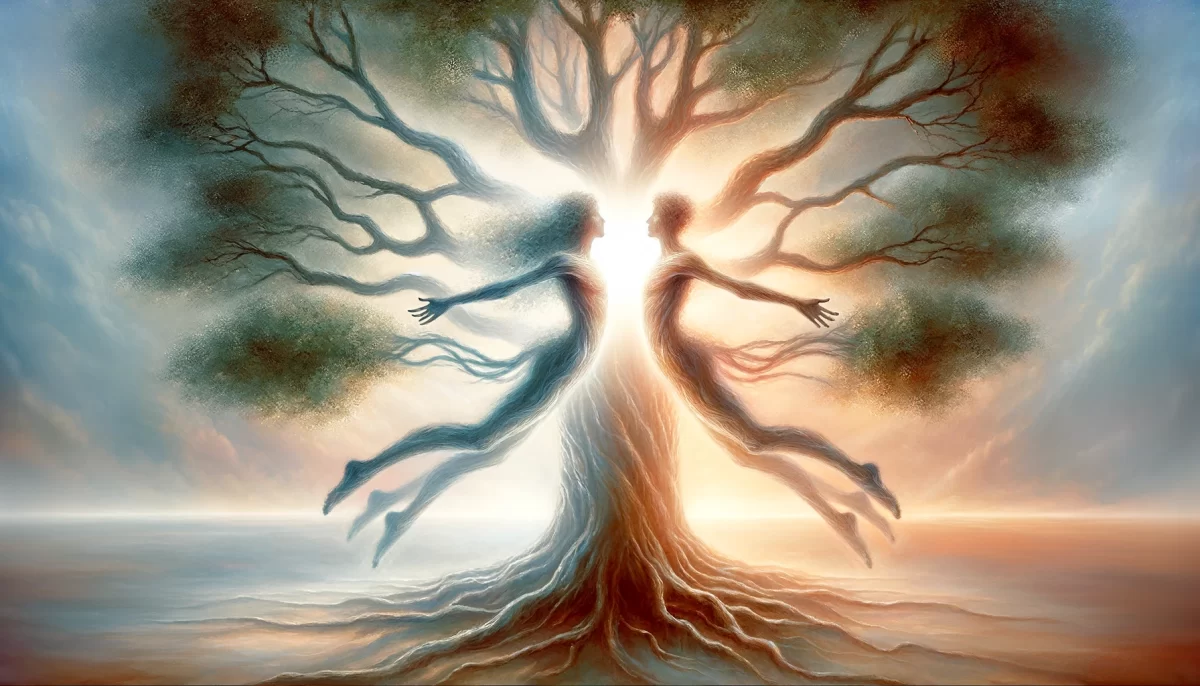
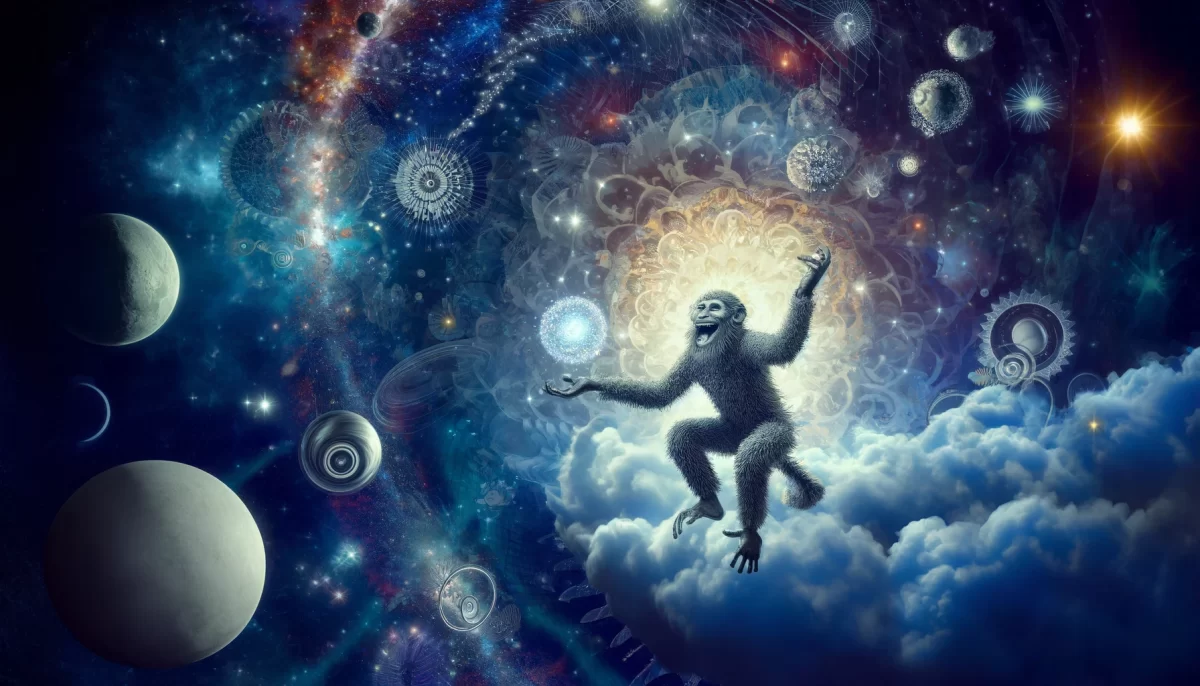
Leave a Reply